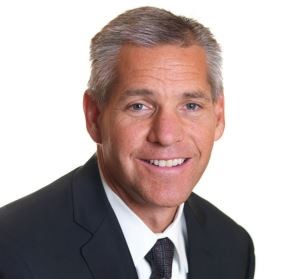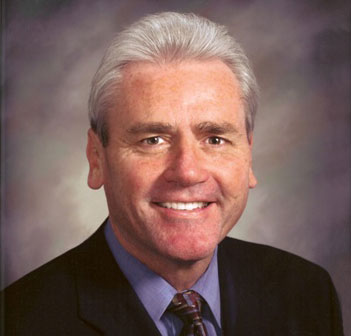Industrial and political insiders sound off in response to the killing of the Keystone XL pipeline in November.
by Tony Burke, Assistant Editor
On Nov. 6, President Obama rejected TransCanada Corp’s Keystone XL pipeline application. The killing of the much bandied-about pipeline was hardly done in the heat of the moment, but calculated over the course of nearly seven years.
“The state department has decided that the Keystone XL pipeline will not serve the national interests of the United States,” Obama stated, referring to a 2014 study conducted by the U.S. Department of State. “I agree with that decision.”
He also noted that the pipeline project “would not make a meaningful long-term contribution to our economy.”
The state department’s report focused on the issues of job creation, environmental impact, and the scenarios that would arise if no action were taken on the pipeline.
“We are disappointed with the President’s decision to deny the Keystone XL application,” said Russ Girling, president and CEO of TransCanada, on the same day the decision was announced. “Today, misplaced symbolism was chosen over merit and science—rhetoric won out over reason.”
Naturally, many energy industry insiders shared Girling’s stance on the decision. API’s president and CEO, Jack Gerard, made the following comment following the decision, “It’s ironic that the Administration would strike a deal to allow Iranian crude onto the global market while refusing to give our closest ally, Canada, access to U.S. refineries… This decision will cost thousands of jobs and is an assault to American workers. It’s politics at its worst.”
Terry O’Sullivan, general president of The Laborers’ International Union of North America (LiUNA), directed his pointed criticisms at not only the politics of the decision, but the apparent contradictions in the State Department’s report.
“President Obama’s own State Department concluded that building the Keystone XL ‘is unlikely to significantly affect the rate of extraction in oil sands…’ Worse, reviewing the impact of not building the Keystone XL, the same report concluded that, ‘the total annual GHG emissions (direct and indirect) attributed to the No Action scenarios range from 28 to 42 percent greater than for the Keystone XL,’” said O’Sullivan, in a statement. “But facts apparently mean as little to the President as the construction jobs he repeatedly derided as insignificant because they are ‘temporary.’ Ironically, the very temporary nature of the President’s own job seems to be fueling a legacy of doing permanent harm to middle- and working-class families.”
Also in the statement, O’Sullivan added, “Obama today demonstrated that he cares more about kowtowing to green-collar elitists than he does about creating desperately needed, family-supporting, blue-collar jobs.” Not sparing any rhetoric of his own, O’Sullivan continued, “The politics he has played with their lives and livelihoods is far dirtier than oil carried by any pipeline in the world, and the cynical manipulation of the approval process has made a mockery of regulatory institutions and government itself.”
An undeniably hot issue across the nation, the decision had its fair share of supporters. Co-founder of 350.org, Bill McKibben delivered the following appreciative, yet measured, statement, “[The decision] gives [President Obama] new stature as an environmental leader, and it eloquently confirms the five years and millions of hours of work that people of every kind put into this fight. We’re still oftly (sic) sad about Keystone South and are well aware that the next president could undo all this, but this is a day of celebration.”
May Boeve, also of 350.org, added, “More than anything, though, today’s decision affirms the power of social movements to enact political change, and a clear sign that our movement is stronger than ever.”
Though TransCanada initially claimed it would continue to pursue the pipeline project, the corporation officially withdrew its application to route the line through Nebraska on Nov. 18. According to Bold Nebraska director Jane Kleeb, the Nebraska Public Service Commission was known to be “a dead end.”
Art Tanderup, a Nebraskan landowner located along the proposed pipeline route confirmed Kleeb’s assessment, saying, “Farmers, ranchers, and Native Americans along the route can get back to their ‘normal’ lives. The heartland’s water, land, and rural economy have been protected.”
While there were clearly many pieces to this puzzle, Mark Allen Plummer, CEO of Chestnut Exploration and Production, felt that the decision was purely symbolic, and the economics thereof did not reflect the reality of energy use in America.
“While eventually we will get to a time where we no longer use fossil fuels, the technology is not there yet and is unlikely to catch up economically from symbolic politics,” said Plummer in a blog post.
Plummer asserted that U.S. citizens are not likely to stop traveling to their heart’s desire, nor will they be willing to absorb the cost of supporting fledgling technologies such as solar panels. He added, “Canadian crude will find its way to the gulf in Texas, one way or another, especially as the price of oil begins to creep back up around the globe.”
It remains to be seen how large a blow this will be to the oil and gas industry, and, as Plummer elocuted, the industry will inevitably, and out of necessity, find a way to carry on.














